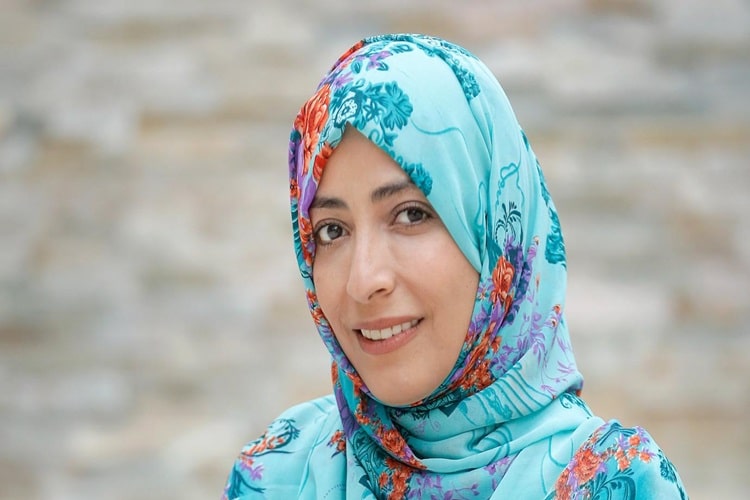Unmasking a Legend: The Story of Tawakkol Karman

Tawakkol Karman is a Yemeni journalist, politician, and human rights activist who gained international recognition for her efforts in promoting women’s rights, democracy, and peace in Yemen.
Life and Career
Tawakkol Karman was born on February 7, 1979, in Ta’izz, Yemen. She grew up in a politically active family and was exposed to activism from a young age. Her father was a lawyer and politician, and her family supported her pursuit of education and activism.
Karman earned a bachelor’s degree in commerce from the University of Science and Technology in Sana’a, Yemen. She later pursued a master’s degree in political science from the same university.
Karman’s career as an activist began in the 1990s when she started writing articles for various Yemeni newspapers advocating for human rights, freedom of expression, and democracy. She became involved in various civil society organizations and played a crucial role in advocating for press freedom and human rights.
She gained prominence as a leader in the 2011 Arab Spring protests in Yemen, which sought to address issues of corruption, economic inequality, and political repression. Tawakkol Karman was a vocal critic of then-President Ali Abdullah Saleh and played a significant role in mobilizing and organizing protests.
In 2011, she was awarded the Nobel Peace Prize, making her the first Yemeni, the first Arab woman, and the second Muslim woman to receive the prestigious honor. The Nobel Committee recognized her “non-violent struggle for the safety of women and women’s rights to full participation in peace-building work.”
After the Arab Spring, Karman continued her activism and political engagement. She co-founded the political party Al-Islah and served as a member of Yemen’s National Dialogue Conference, where she advocated for inclusive political processes and the rights of women.
Award and Legacy
Tawakkol Karman was awarded the Nobel Peace Prize in 2011 for her nonviolent struggle for the safety of women and for women’s rights to full participation in peace-building work. She shared the prize with two other women: Liberian peace activist Leymah Gbowee and Liberian President Ellen Johnson Sirleaf. Tawakkol Karman’s award specifically highlighted her courageous efforts during the Arab Spring protests in Yemen and her dedication to promoting human rights, democracy, and gender equality.
Tawakkol Karman has been a strong advocate for women’s rights, both in Yemen and in the broader Arab world. She played a significant role in challenging traditional gender roles and promoting the active participation of women in social and political spheres.
Karman’s involvement in the Arab Spring protests in Yemen and her commitment to nonviolent activism contributed to her international recognition. Her efforts, along with those of other activists, played a role in shaping the trajectory of political change in the region.
Being awarded the Nobel Peace Prize elevated Tawakkol Karman’s profile and drew global attention to the issues she championed. The prize highlighted the importance of women’s participation in peace-building efforts and brought international awareness to the challenges faced by Yemen during a period of political upheaval.
Tawakkol Karman’s involvement in Yemeni politics, including her role in co-founding the Al-Islah party and participating in the National Dialogue Conference, reflects her commitment to shaping the political landscape of Yemen with an emphasis on inclusivity and democratic values.
Karman continues to be an inspiration to activists and advocates around the world, particularly those working in contexts where democracy and human rights are under threat. Her story serves as a testament to the power of nonviolent resistance and the potential for positive change through grassroots movements.
Observer Voice is the one stop site for National, International news, Sports, Editor’s Choice, Art/culture contents, Quotes and much more. We also cover historical contents. Historical contents includes World History, Indian History, and what happened today. The website also covers Entertainment across the India and World.

